Mumbai Diaries Season 2: Even More Incisive & Wrenching In Its Sophomore Turn
This is #CriticalMargin, where Ishita Sengupta gets contemplative over new Hindi films and shows. Here: Mumbai Diaries Season 2, on Amazon Prime Video.
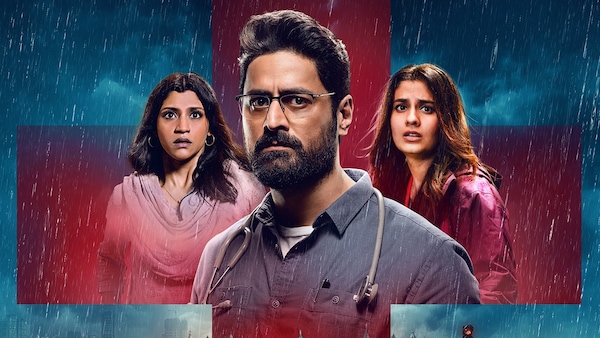
Last Updated: 08.16 PM, Oct 08, 2023
IF there is anything more difficult than making a good show it is to make a follow-up worthy of it. The stakes are higher than they may seem. Take Zoya Akhtar and Reema Kagti’s Made In Heaven for instance, which hinged on the terrific premise of looking at opulent weddings from the outsiderly gaze of wedding planners. The first season premiered in 2019 and took everyone by storm. By the time the second season dropped four years later, it was a lesser work. The ingenuity was scraped clean and what remained was a hollow outing that was too aware of what worked the first time.
On paper, Nikkhil Advani’s show Mumbai Diaries, which focuses on the medical community, ran the same risk. The near-perfect first season (2021) unfolded in a government hospital in Mumbai when a crisis in the form of a terrorist attack on November 26, 2008 had reared its head. The show did an excellent job in portraying the exigency of the day by never moving ahead of itself. Every calamity arrived out of nowhere as if the makers, though stitching together pieces of a past incident, were learning about a disaster in real time. More crucially, the 10-episode series was a terrific exposition of heroism, underlining across its runtime that heroes are born in spite of circumstances and not because of them. That they are not made, but unmade.
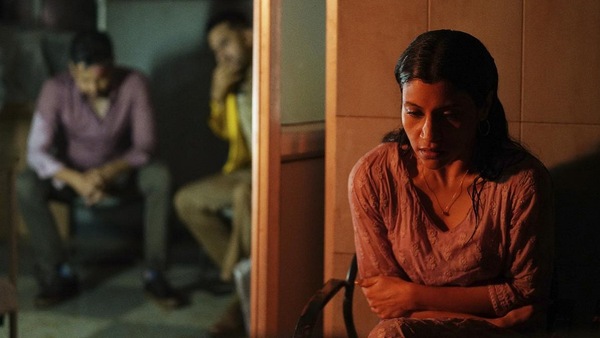
The new season, all directed by Advani, is a rare achievement that unravels as more accomplished and sure-footed than the first. Based on the disastrous 2005 flood in the city, Mumbai Diaries is a terrific retelling of a horrible tragedy that had brought the city to a standstill. Advani’s keen eye ensures that we remain attuned to the labour of those who worked tirelessly through the crisis and acknowledge their toil without romanticising their plight. He ensures that we witness the spiritedness of Bombay without absolving those who necessitate displaying such spirit in the first place.
Spread across eight episodes, the outing straddles the delicate balance between commentary and catharsis with triumph. Thus, a scene of a helpless man looking for his pregnant wife through knee-deep water is followed by a rousing moment when a midwife braves the rain and tells him that his child will live. The new season of Mumbai Diaries is built of such contrasting interplays, each so expertly crafted that it is difficult to remain unmoved by it.
The story opens six months from whence the previous season had ended; the timeline of the 2005 floods is moved to 2008. In hindsight it does not matter. Mumbai’s broken infrastructure renders the possibility of a flood a delayed reality and not a mishap restricted to the past. The narrative transition is smooth. The first episode opens to blasting television channels and news anchors peddling judgment. It is any other day in the country or in the city.
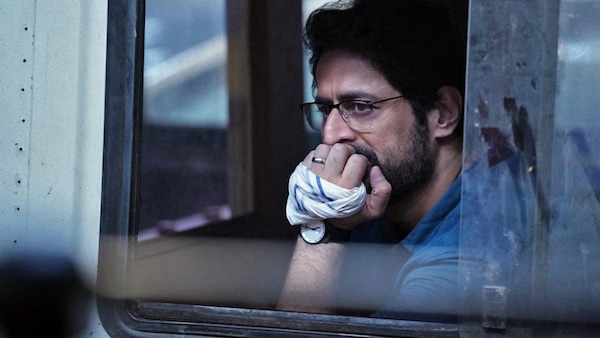
Dr Kaushik Oberoi (Mohit Raina), the rebellious doctor in Bombay General Hospital, is subjected to a social trial over his supposed mistreatment of a police officer, who was injured in the attack and later died on his watch.
Advani builds the narrative tension with deftness that never lands with the enormity of hindsight. He understands how common a sight of rain is in a city like Mumbai. Thus, the fact that the sky has been unendingly leaking on July 25, does not evoke astonishment but concern among the faculty members at the Bombay General Hospital. They start their day with prepping for the inflow of patients they know will arrive afflicted with waterborne diseases.
Much like last time, the technical craft in Mumbai Diaries is immaculate and seeps into the narrative. It is so good that it feels invisible. Take for instance the way the rain is shot. When outdoors, the magnitude of the situation is stressed by aerial shots of roads clogged with cars. The image feels generic till the focus is sharpened and passengers stuck inside cars fill the screen. This visual design is further accentuated indoors as the hospital is lit with green hues that feels at once damp and mossy.
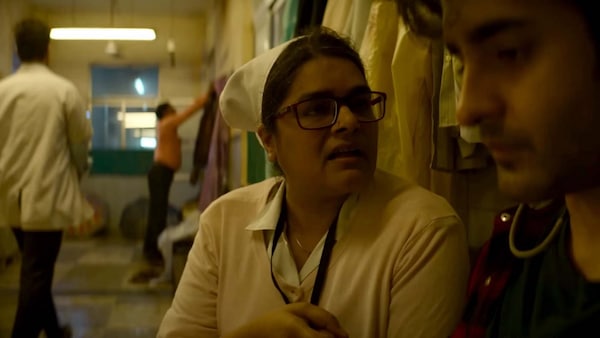
But it is what happens inside the staff-starved, resource-strapped institution that makes the show what it is; the chaos, the people, the doctors and the relationships are depicted so organically... like they are ingrained in the show’s DNA. Advani also takes the characters and gives each one of them an arc. It is a feat because no one feels shortchanged. An easier route for him would have been to milk characters he had already established in the first season, like Dr Oberoi. The filmmaker not only resists doing that but even keeps the character absent from a couple of episodes. His intent becomes clear soon: in the face of a crisis, everyone is a protagonist, and every character feels like one in the show.
The nurse looking for compensation from the 26/11 attack appears to be headlining her own story, so is the young trainee who lost her mother on that fateful day. Oberoi’s absence is not incidental. He is tending to his pregnant wife and looking to repair broken ties. Among them, it is the track of social service doctor Chitra Das (a terrific Konkona Sen Sharma) and her confrontation with her abusive husband, Dr Sourav Chandra (an excellent Parambrata Chattopadhyay) that leaps out for the sensitivity with which it is presented. British-resident Chandra (Chattopadhyay goes delightfully unhinged, right from the accent, to muttering “wanker” under his breath) is part of a delegate group who have come to India from abroad to look at the hospital that had braved the attack.
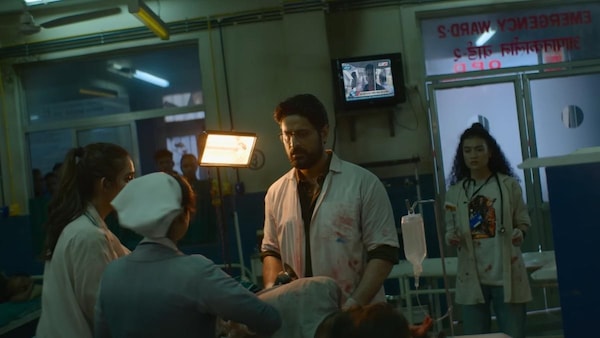
His presence and the way his character is written (barring the last episode) make for a riveting portrayal of domestic abuse. The flashbacks are tellingly inserted, the very design underlining the complexity of exiting such a situation. For instance, despite being traumatised on seeing him, when Chitra sees Sourav tending to the patients with care, her mind inevitably goes back to the better moments in their marriage.
Even then, the real victory of a show like Mumbai Diaries resides in the creator’s understanding of what a hospital is, beneath the stench of medicine and paucity of resources. It is a place where machines record vitals and a number-coded report can say more about a person than they are willing to admit. This is why when a young boy is admitted and his mother tells the doctors that he was electrocuted, it is his reports which give away the turmoil and identity crisis he is going through. Or, the fact that everyone believes that a child was sexually abused after his reports say so. It is quite a marvel the precision with which Advani ties the personal with the physiological, like he knows the intimate way they are related.
The new season of Mumbai Diaries, like its predecessor, spans across 24 hours. The crisis feels real, so does the chaos. Bridges collapse, a journalist has a change of heart and a doctor fails to save the one person he most wanted to. All of it adds up — the urgency, the failures, the setbacks. Because the show understands that doctors do not evade disasters, but manage them — because of the circumstances, and not despite them.
